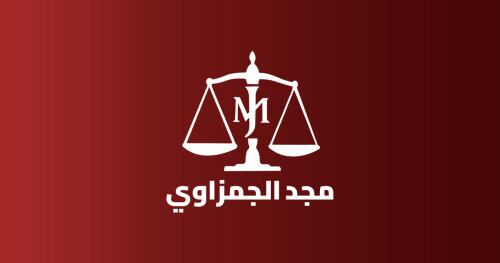Best Landlord & Tenant Lawyers in Hashemite Kingdom of Jordan
Share your needs with us, get contacted by law firms.
Free. Takes 2 min.
Free Guide to Hiring a Real Estate Lawyer
Or refine your search by selecting a city:
List of the best lawyers in Hashemite Kingdom of Jordan
About Landlord & Tenant Law in Hashemite Kingdom of Jordan
The landlord and tenant laws in the Hashemite Kingdom of Jordan are designed to regulate the relationship between property owners and their tenants. These laws ensure the rights and duties of both parties are clearly laid out and provide mechanisms for dispute resolution. The overarching aim is to create a balanced framework that protects tenants from unfair eviction or rent practices while safeguarding landlords' rights to their property. Understanding these regulations is crucial for both landlords and tenants to ensure compliance and foster harmonious relations.
Why You May Need a Lawyer
There are several situations where individuals may require legal assistance concerning landlord and tenant matters in Jordan:
- Disputes regarding lease agreements, such as disagreements over terms or conditions.
- Eviction proceedings where a landlord seeks to evict a tenant without following proper legal steps.
- Disputes over rent payments, including unauthorized increases or non-payment issues.
- Maintenance and repair disagreements where the landlord or tenant fails to uphold their responsibilities.
- Negotiating or drafting lease agreements to ensure all terms are fair and legal.
- Tenant's rights violations, including illegal entry by the landlord or lack of access to essential services.
Local Laws Overview
The Jordanian landlord and tenant laws encompass several critical aspects:
- Rental Agreements: Leases usually specify the duration of the rental period, the amount of rent, due dates, and conditions for renewal or termination.
- Rent Control: There are regulations governing rent increases, which typically require a significant time lapse between adjustments and adherence to specific legal justifications.
- Eviction Process: Landlords must provide justified reasons for eviction, such as non-payment or violation of lease terms, and follow a legal procedure to remove a tenant.
- Tenant Rights: Tenants are entitled to live in a habitable rental unit with access to necessary utilities and protection from unlawful intrusion.
- Maintenance and Repairs: Landlords are generally responsible for maintaining the structural integrity of the property, though minor repairs may fall upon the tenant.
Frequently Asked Questions
What should a rental agreement include in Jordan?
A rental agreement should include specifics about the rent amount, payment frequency, lease duration, security deposits, maintenance responsibilities, and termination conditions.
How often can rent be increased?
Rent increases are subject to legal restrictions and cannot occur frequently. The conditions and frequency of permissible increases are determined by local laws.
What is the process for evicting a tenant?
To evict a tenant legally, the landlord must provide a legitimate reason, adhere to the notice period defined by law, and, if necessary, file for eviction proceedings in court.
Who is responsible for repairs?
Typically, landlords are responsible for major repairs, while tenants handle minor upkeep unless the damage is caused by tenant negligence.
Can a landlord enter the property without notice?
No, landlords are required to provide reasonable notice to tenants before entering the property, except in emergencies.
Is a security deposit required, and how is it handled?
Landlords can require a security deposit, which must be clearly documented in the lease agreement. It should be returned to the tenant upon lease termination, barring any lawful deductions for damages.
Are there tenant protection laws against discrimination?
Yes, local regulations prohibit discrimination against tenants based on religion, ethnicity, or other protected characteristics.
How long does a tenant have to vacate once a lease ends?
Once a lease ends, tenants are typically expected to vacate the premises on the agreed-upon termination date unless a renewal or extension is negotiated.
What recourse do tenants have if landlords neglect responsibilities?
Tenants can file a complaint with local authorities or take legal action if landlords fail to fulfill their maintenance obligations or other duties as per the lease agreement.
How can disputes between landlords and tenants be resolved?
Disputes can be resolved through mediation, arbitration, or by pursuing litigation in Jordanian courts, depending on the severity and nature of the disagreement.
Additional Resources
For additional assistance, individuals can reach out to the following resources:
- The Jordanian Bar Association for legal representation and consultations.
- The Ministry of Justice for mediation services and landlord-tenant dispute resolution.
- Local legal aid organizations for advice and support, especially for low-income individuals.
Next Steps
If you require legal assistance concerning landlord and tenant issues in Jordan, consider the following steps:
- Gather all relevant documentation, such as lease agreements, correspondence, and proof of any payments or repairs.
- Consult with a qualified lawyer who specializes in landlord and tenant law to understand your rights and obligations.
- Explore options for mediation or arbitration if the dispute is suitable for out-of-court resolution.
- If necessary, prepare to file a case in court, ensuring all documentation and evidence are ready for presentation.
Lawzana helps you find the best lawyers and law firms in Hashemite Kingdom of Jordan through a curated and pre-screened list of qualified legal professionals. Our platform offers rankings and detailed profiles of attorneys and law firms, allowing you to compare based on practice areas, including Landlord & Tenant, experience, and client feedback.
Each profile includes a description of the firm's areas of practice, client reviews, team members and partners, year of establishment, spoken languages, office locations, contact information, social media presence, and any published articles or resources. Most firms on our platform speak English and are experienced in both local and international legal matters.
Get a quote from top-rated law firms in Hashemite Kingdom of Jordan — quickly, securely, and without unnecessary hassle.
Disclaimer:
The information provided on this page is for general informational purposes only and does not constitute legal advice. While we strive to ensure the accuracy and relevance of the content, legal information may change over time, and interpretations of the law can vary. You should always consult with a qualified legal professional for advice specific to your situation.
We disclaim all liability for actions taken or not taken based on the content of this page. If you believe any information is incorrect or outdated, please contact us, and we will review and update it where appropriate.
Browse landlord & tenant law firms by city in Hashemite Kingdom of Jordan
Refine your search by selecting a city.















